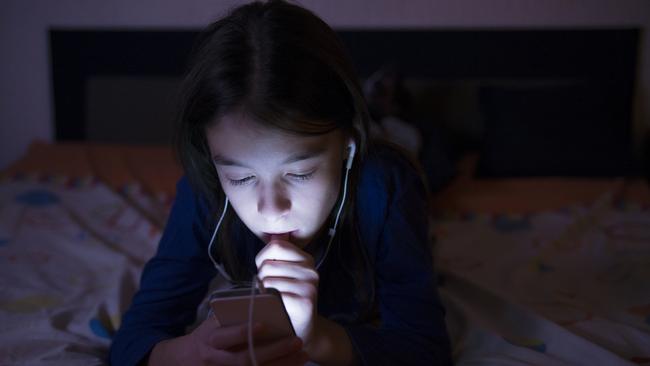Sext ed: it’s awkward, but necessary
NOBODY wants to talk to their kids about sexting. But harden up and do it. Their safety depends on it, writes Martin Newman.
Rendezview
Don't miss out on the headlines from Rendezview. Followed categories will be added to My News.
I FIRST had the conversation with my daughter when she was nine.
To her it was ‘excruciatingly awkward’ (her own words to my wife and I) and ‘unnecessary’ (she insisted).
We weren’t talking about the ‘birds and the bees’ — it was about revenge porn and sexting — nude photos sent by mobile phone.
It went along the lines of: “Don’t ever, ever, ever send a picture of yourself undressed to anyone.”
Friends I mentioned it to thought I was overreacting.
It’s the type of topic no Enid Blyton book can prepare a parent for talking with their offspring about.
I didn’t, by the way, think that this was something my daughter had encountered. At the time she didn’t even have a mobile phone. But many of her friends did (some since the age of six).
While sharing sexts is a problem, the fact is you don’t even need to own a mobile phone to end up a victim of sexting.

There was a time when someone standing around a change room with a camera would set off alarm bells, but today everyone accepts camera phones in any situation.
Pictures shared knowingly or taken innocently, or as a joke, can have devastating, long-term implications.
Moreover, the pressure to sexualise childhood interactions starts young. More than a third of teens aged 13 to 15 have sent a sexual image while over 60 per cent have received one.
Primary schools now bring in the police to explain cyber bullying and sexting.
While everyone wants their kids to have an idyllic childhood and not to need to have to talk about this stuff, the times are such that we do.
Children have to be warned, and warned early, not just that they can be bullied and victimised in this way, but that through immaturity can find themselves in the role of perpetrator.
Sharing sexts can also leave the sender open to criminal prosecution for disseminating child pornography and a place on the sex offenders register.
Pornography has been around for centuries, but was never ubiquitous in the mainstream way it, arguably, is now.
It ranges from the pornification of modelling that brands like Victoria’s Secret have led to TV shows like Geordie Shore portraying relationships as a careless merry-go-round of beds and partners.

For anyone of an impressionable age, viewing relationships in this way or through the prism of pornography sends a bunch of harmful messages.
At an age where important relationships are being formed with friends, family and at some point love interests, trust is a fragile but vital commodity.
Building those relationships in the right way fortifies us against the inevitable let downs of life. Why else as people grow older are they prone to well-up over random recollections of a parent’s kindness or faithfully sentimentalise a first love?
Trust. It’s hard won and painfully lost.
Schools can educate, but are not ultimately responsible for getting through to boys and girls to respect the rights and feelings of others, and to guard against the easy exploitation that comes with the digital age.
So teach your children well, and don’t shy away from the occasional cringingly awkward conversation that may head off something worse.

